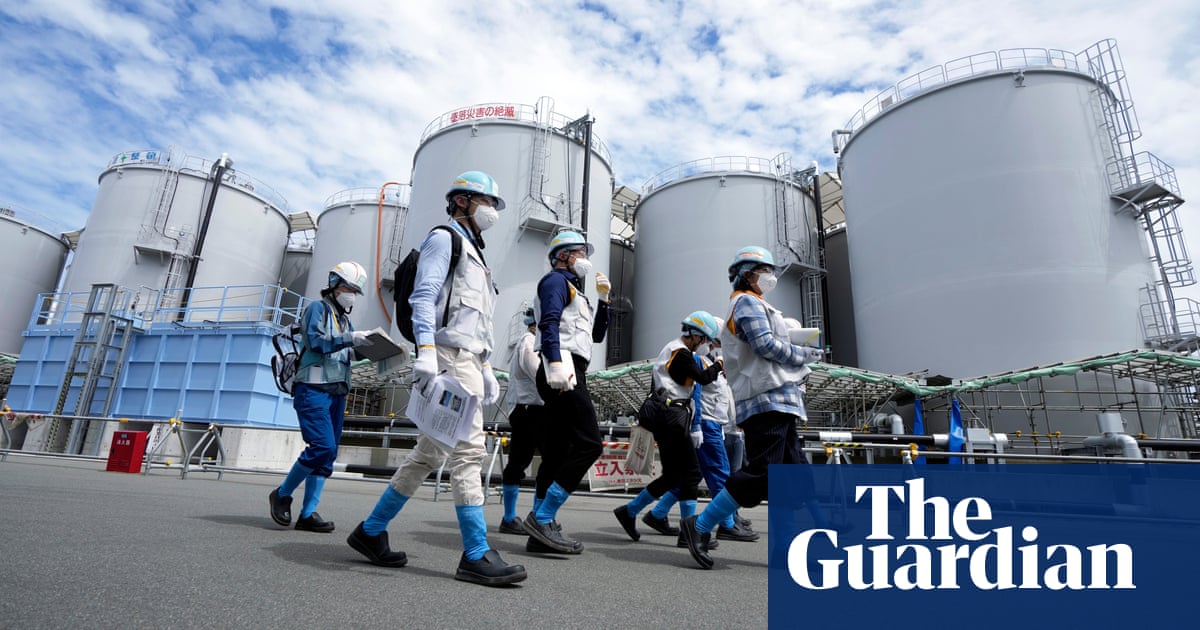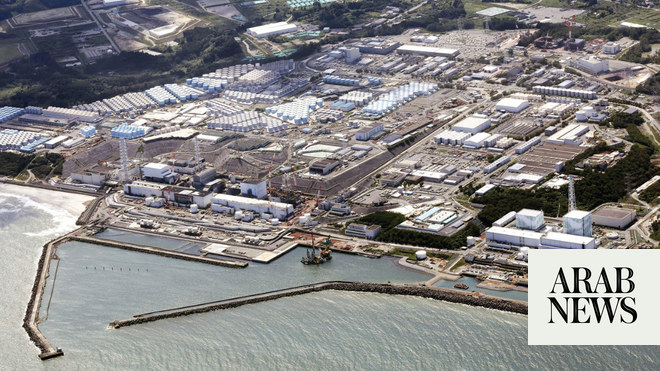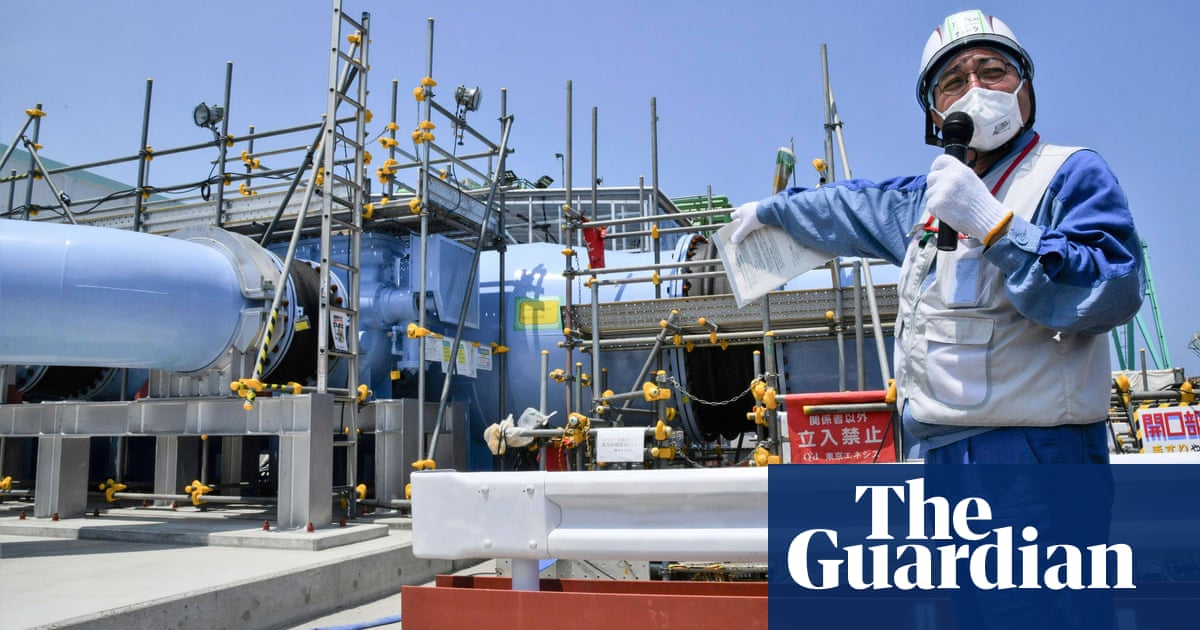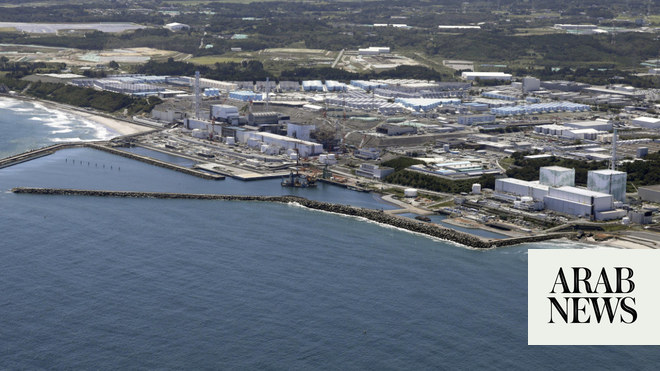
Japan has urged its citizens in China to avoid using their native tongue in loud voices, while its companies have received a wave of abusive calls amid a rise in anti-Japanese sentiment sparked by the controversial discharge of wastewater from the Fukushima Daiichi nuclear power plant.
While Japan insists the treated water is safe – a view backed by the UN’s nuclear watchdog – China has staunchly opposed the discharge, which began last week, and banned all Japanese seafood imports. Beijing has called the decision to release the water “selfish” and harmful to the environment and human health.
The Japanese government on Sunday published new data showing radioactivity levels in waters off Fukushima continued to be well within safe limits. Scientists have pointed out that China’s own nuclear power plants release wastewater with higher levels of tritium than that found in Fukushima’s discharge, and that the levels are all within boundaries not considered to be harmful to human health.
Calls from China began flooding Japanese businesses from Thursday, when the plant’s operator, Tokyo Electric Power (Tepco), started releasing water used to cool the stricken nuclear reactors at Fukushima Daiichi.
Japanese businesses and groups, ranging from a concert hall in Tokyo to an aquarium in the northern prefecture of Iwate, reported that they had started receiving so many calls from Chinese speakers that they had difficulty conducting normal operations.
The vice foreign minister, Masataka Okano, summoned the Chinese ambassador over the phone calls, Japan’s foreign ministry said.
In a statement, the ministry said the calls were also occurring at Japanese facilities in China, and urged the government to take appropriate action promptly and ensure the safety of Japanese citizens.
Japan’s top government spokesman, Hirokazu Matsuno, described the calls as “extremely regrettable”.
Hiroyuki Namazu, a senior Japanese diplomat in charge of Asian and Oceanian affairs, voiced regret about the calls and told senior officials at the Chinese embassy in Tokyo to call for calm in China, the Japanese foreign ministry said in a statement on Saturday.
Similar incidents have occurred in China against Japanese facilities, Namazu told Chinese embassy officials, according to the statement.
“We strongly urge the Chinese government to take appropriate measures, such as calling on its citizens to act calmly, and to take all possible measures to ensure the safety of Japanese residents in China and Japanese diplomatic missions in China.”
Tokyo’s embassy in Beijing has urged its nationals there to behave with caution. “When going out, try to be cautious, such as not speaking Japanese loudly unnecessarily,” the embassy said in an alert posted on its website on Friday.
The notice also advised citizens to “pay close attention to the surroundings of the embassy” if planning to visit.
A Fukushima businessperson told the Kyodo news agency that his four restaurants and pastry shops received a total of round 1,000 calls on Friday, mostly from China.
His businesses had to unplug their phones, Kyodo said.
Fukushima city mayor Hiroshi Kohata said in a Facebook post Saturday that the city hall had received about 200 similar calls in two days, while local schools, restaurants and hotels also became targets.
“I will report this to the Japanese government and demand action,” he wrote in his post.
Chinese social media users shared videos of themselves making calls to Japanese numbers, including restaurants in Fukushima.
A rock and eggs were thrown at Japanese schools in two locations in China last week, Kyodo said, citing Japanese government sources. No one was hurt in the incidents.
Tepco is releasing more than 500 Olympic swimming pools’ worth of wastewater used to cool Fukushima’s damaged reactors, three of which went into meltdown in March 2011 when they were hit by a massive earthquake and tsunami that killed about 18,000 people along Japan’s north-east coast.
The water, which will be discharged over the next 30 to 40 years, has been filtered of all radioactive elements except for tritium. The Japanese environment ministry said on Sunday that a fresh test of Fukushima coastal water showed no elevated levels of tritium. The ministry added that the water samples did not show signs of gamma radiation that can come from other radioactive materials, such as caesium.











